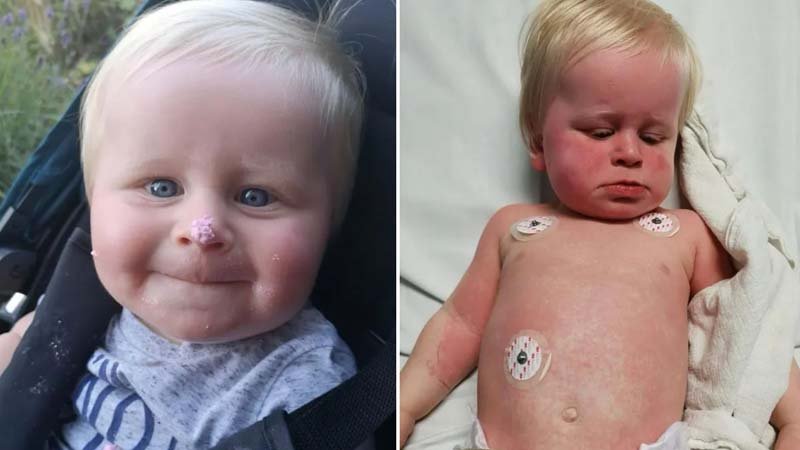
Via/MEGA
In a heart-wrenching incident in Flint, North Wales, a baby boy named Lucas Thomas Munslow tragically died less than 24 hours after being discharged from the hospital.
His mother, Kim Munslow, and his father, Nathan Munslow, are now urging parents to seek second opinions on medical diagnoses, emphasizing the painful lesson they learned about the importance of advocacy in medical care.
Lucas’s ordeal began with a seemingly routine illness. Kim was at work when she received a call from Nathan, informing her that Lucas had a high temperature of over 39 degrees Celsius. Nathan administered Calpol, a common fever reducer, but Lucas’s condition did not improve.
The following morning, Kim took Lucas to see a doctor who diagnosed him with a viral infection and advised the parents to monitor him closely. By Friday, with Lucas’s condition failing to improve and additional symptoms like cold hands and feet and a high fever persisting Kim and Nathan took their son to the A&E department of Glan Clwyd Hospital.
There, after waiting for hours, a nurse noticed that Lucas’s body had gone stiff—a critical observation that did not lead to an immediate intensive investigation. Eventually, they were seen by a pediatric doctor who, after a brief examination of Lucas’s ears and throat, diagnosed him with tonsillitis and discharged him within half an hour, reports Liverpool Echo.
Tragically, Lucas’s real condition was far more severe. In the early hours of Saturday, less than 24 hours after being sent home, Lucas suffered a seizure in his mother’s arms and never recovered. He was rushed back to the hospital, but despite the medical staff’s efforts, Lucas passed away.
The sudden and devastating nature of his death led to a police investigation, adding to the family’s distress. The police conducted a thorough search of their home, taking various items including Lucas’s favorite blanket, which only compounded the family’s grief.
The subsequent inquest into Lucas’s death revealed that he had actually been suffering from meningitis, a severe infection that the initial medical team had failed to diagnose. The inquest further disclosed that timely administration of antibiotics could have significantly increased Lucas’s chances of survival.
The Munslow family was informed that with antibiotics, there was a 78% chance that Lucas could have survived, albeit possibly with disabilities or brain damage. This revelation was a devastating blow to Kim and Nathan, who had trusted the medical diagnosis and treatment.
The experience highlighted a critical gap in the recognition of meningitis symptoms, which can often be subtle and do not always include the commonly known rash. Lucas had shown other signs, such as stiffness and abnormal body temperatures, which were overlooked as indicators of the potentially fatal condition.
The Munslows are now dedicated to raising awareness about meningitis and the vital importance of recognizing its signs. They hope to encourage other parents to advocate strongly for their children’s health and to insist on second opinions when their instincts tell them something might be wrong. Their message is clear: trust in medical professionals is crucial, but so is vigilance and advocacy, especially when a child’s life is at stake.


